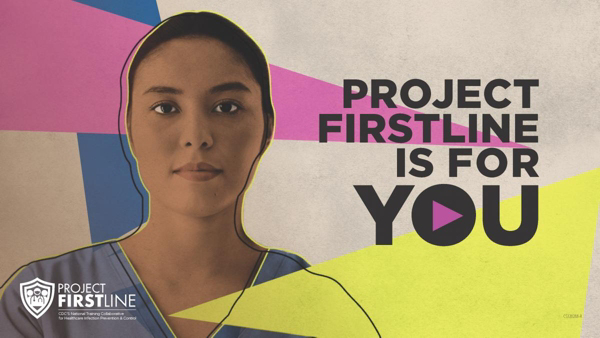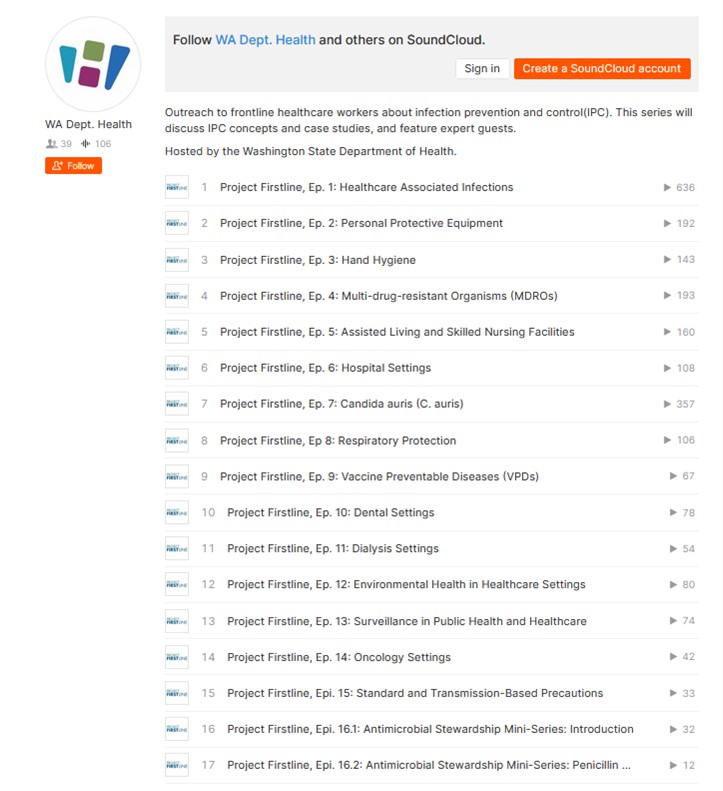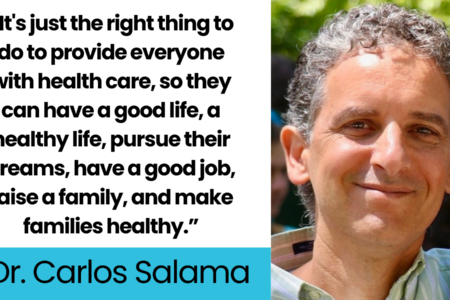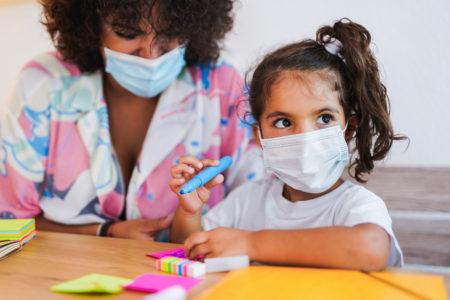
Share On Social!
Healthcare workers, looking for your next informative – and entertaining – infection control resource?!
Look no further, the Washington State Department of Health’s Project Firstline Podcast covers a variety of infection control topics, from healthcare-associated infections to multi-drug-resistant organisms.
The podcast is part of the US Centers for Disease Control and Prevention (CDC)’s Project Firstline, which provides all healthcare workers the infection control training and resources they need to protect themselves, their patients, and their coworkers from infectious diseases.
With 17 episodes to choose from, you’ll be sure to learn something new.
Let’s dive in!
A Glimpse at the Episodes
Dating back to the height of the COVID-19 pandemic, the opening episodes of the Washington State Department of Health’s Project Firstline Podcast focuses on the foundations of infection control, including how to prevent healthcare-associated infections, how to properly wear, put on, and remove personal protective equipment (PPE), and effective hand hygiene.
Other episodes cover infection control practices in various healthcare settings, including skilled nursing facilities; hospitals; and dentistry, dialysis, and oncology settings.
 The rise of antimicrobial-resistant organisms and how to prevent them is a reoccurring theme throughout the podcast series.
The rise of antimicrobial-resistant organisms and how to prevent them is a reoccurring theme throughout the podcast series.
Antimicrobial resistance is considered an urgent global public health threat that is especially relevant to infection control.
“Antibiotic resistance is on the rise,” Jessica Zering, an Antimicrobial Stewardship Pharmacist at the Washington State Department of Health, explained in episode 16 of the podcast. “The bacteria that cause common infections, such as pneumonia and urinary tract infections, are starting to outsmart our current antibiotics. When bacteria become resistant to the antibiotics used to treat them, those antibiotics are no longer effective.
“This means that we may have to use antibiotics that may be less effective, more expensive, or have more side effects. It also means that there may not be an antibiotic available at all to treat the infection.”
Thus, good infection control is something that every healthcare worker can do.
Keeping resistant germs from spreading in healthcare and playing an important and valuable part in fighting the threat of antimicrobial resistance.
Find an episode that interests you and listen to the podcast!
- Healthcare Associated Infections
- Personal Protective Equipment
- Hand Hygiene
- Multidrug Resistant Organisms (MDROs)
- Assisted Living and Skilled Nursing Facilities
- Hospital Settings
- Candida auris (C. auris)
- Respiratory Protection
- Vaccine Preventable Diseases (VPDs)
- Dental Settings
- Dialysis Settings
- Environmental Health in Healthcare Settings
- Surveillance in Public Health and Healthcare
- Oncology Settings
- Standard and Transmission-Based Precautions
- Antimicrobial Stewardship Mini-Series: Introduction
- Antimicrobial Stewardship Mini-Series: Penicillin Allergies
Learn more about Washington State Department of Health’s Project Firstline Projects!
What Can You Do to Promote Infection Control in Your Healthcare Setting?
Help keep yourself, your colleagues, and your patients safe from infectious disease threats by building on your infection control knowledge!
To show your dedication, sign this pledge to complete an infection control training or activity through CDC’s Project Firstline!
You can also share infection control training opportunities with healthcare colleagues via LinkedIn with our Project Firstline social media toolkit.
You can access more information about infection prevention and control in healthcare by visiting resources from CDC Project Firstline.
Going on its fourth year and made up of a diverse group of more than 80 health partners, Project Firstline aims to provide all healthcare workers with the infection control training and resources they need to prevent the spread of infectious diseases.
Salud America! at UT Health San Antonio is working with the National Hispanic Medical Association to bring Project Firstline infection control educational content to healthcare workers, so they are equipped with the knowledge they need to protect themselves, their facilities, and their patients (Latinos and all communities) from infectious disease threats in healthcare settings.
Check out some of the articles from this partnership:
- What is Project Firstline?
- What is the Goal of Infection Prevention and Control in Healthcare Settings?
- What’s a Virus?
- What is Ventilation and Why Does It Matter?
- Contact Time: What is It and How Does it Impact Infection Control?
- The Surprising Difference Between Cleaning and Disinfection
- What’s a Respiratory Droplet and Why Does It Matter?
- We Need to Talk about Hand Hygiene Again
- Why are Gowns, Gloves, and Eye Protection Recommended for COVID-19?
Check out some of the Latino healthcare workers who are heroes for infection control:
- Dr. Jorge Moreno: Infection Control Hero for Spanish-Speaking Latinos and All Patients
- Dr. Trinidad Solis: Harvesting Infection Control Solutions for Farmworkers
- Dr. Marlene Martin: Collaborating with Promotoras in Sustainable Infection Control Efforts
Learn More about Project Firstline!
Editor’s Note: This article is part of a collaboration between Salud America!, the National Hispanic Medical Association, and the CDC’s Project Firstline. To find resources training materials, and other tools to bolster knowledge and practice of infection control, visit Project Firstline and view Salud America!’s infection control content.
By The Numbers
142
Percent
Expected rise in Latino cancer cases in coming years




[…] The pandemic is another chapter in the bitter story of American racism and inequality. Black and Latinx people are being infected and are dying at much higher rates than white Americans. Many people of […]
[…] coronavirus has killed over 61,000 Latinos in America according to the CDC, accounting for over 18.2% of the total COVID deaths in the […]
[…] Whereas Hispanics make up 11% of D.C.’s inhabitants, they signify 19% of the COVID cases, and 14% of the deaths. Equally, 46% of D.C.’s residents are Black, they usually make up an alarming 75% […]
[…] and historical mistreatment. According to the U.S. Centers for Disease Control and Prevention, Latino and Black American communities are three times more likely to become infected with […]
[…] Covid pandemic has hit the Latino community particularly hard, and data from the nonprofit health equity advocacy group Salud America! shows Latinos lead in the 0-24 age […]
[…] the pandemic, Latinos took major blows, both in terms of COVID-19 cases and also from the economic recession under former President Donald Trump. Nearly half (49%) of […]
[…] the positive trend, the harm may have already been done. The pandemic has disproportionately impacted Latino communities. Reuters reported that election-related or political disinformation that […]
[…] pesar de la tendencia positiva, es posible que el daño ya esté hecho. La pandemia ha impactado desproporcionadamente Comunidades latinas. Reuters informó que la desinformación política o relacionada con las […]
[…] residentes blancos muestran una tasa mucho más baja con 10 muertes por cada 100,000 habitantes(8 9) . Los afroestadounidenses por su parte, denuncian subsistemas de salud que les segregan […]
[…] https://salud-america.org/coronavirus-case-rates-and-death-rates-for-latinos-in-the-united-states/ […]
[…] https://salud-america.org/coronavirus-case-rates-and-death-rates-for-latinos-in-the-united-states/ […]
[…] communities have the second-highest number of COVID-19 cases in the U.S. They’re also more likely to become hospitalized and die from the disease than other […]
[…] total, around 160,000 Latinos were killed by COVID-19. This accounts for 16% of the 1 million deaths in the country. The […]